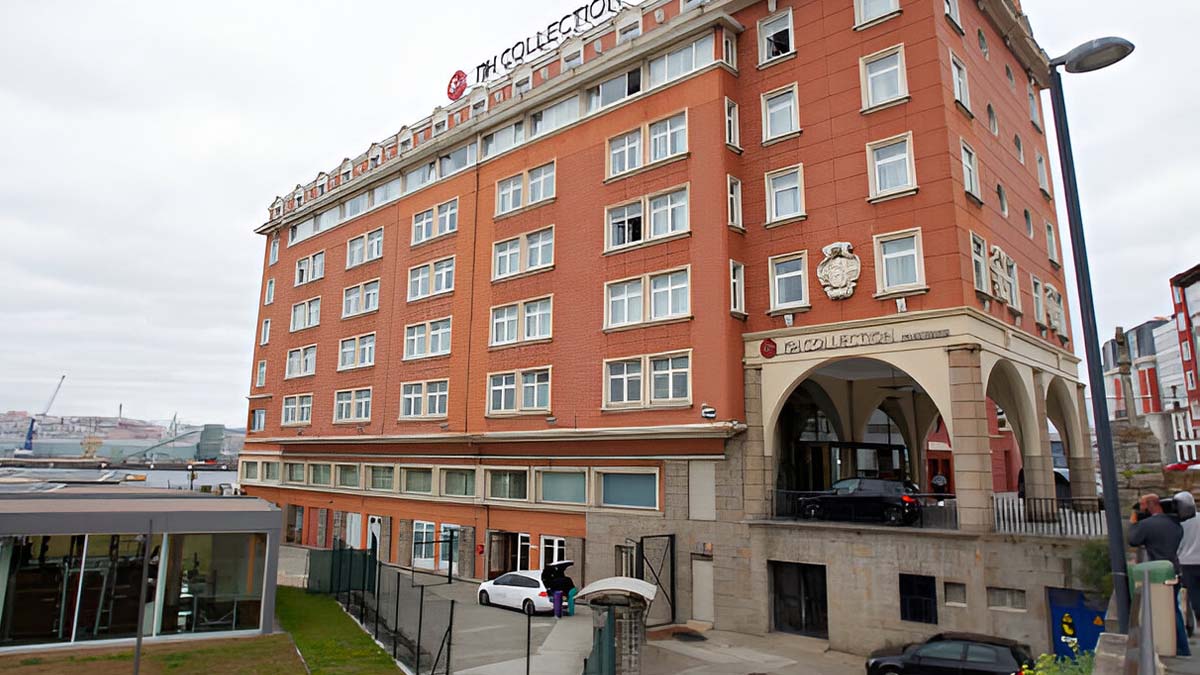In the dynamic world of hotel ownership and development, financing plays a crucial role in turning opportunities into profitable ventures. Whether you’re looking to purchase a new property, refinance an existing one, or fund significant renovations, finding the right financial solution is essential. Hotel bridge loans have emerged as a popular and effective tool for hoteliers who need quick access to capital. This article will explore what hotel bridge loans are, how they work, their advantages and disadvantages, and when they might be the right choice for your business.
What Is a Hotel Bridge Loan?
A hotel bridge loan is a short-term loan designed to provide immediate financing for hotel owners and developers. The term “bridge” reflects the loan’s purpose: to bridge the gap between an urgent financial need and the availability of long-term financing or another financial solution. These loans are commonly used in situations where quick action is needed, such as acquiring a property, refinancing existing debt, or funding renovations.
Hotel bridge loans are typically secured by the hotel property itself and are structured to be repaid within a short time frame, usually between six months and three years. Due to their short-term nature and the urgency they address, bridge loans often come with higher interest rates compared to traditional loans.
How Do Hotel Bridge Loans Work?
Hotel bridge loans are structured to meet specific short-term financial needs. Here’s a closer look at how they work:
1. Immediate Financing
When a hotel owner or developer identifies a time-sensitive opportunity, such as purchasing a property or refinancing existing debt, they may turn to a bridge loan for quick financing. These loans are designed to be processed quickly, with approval and funding often occurring within days or weeks.
2. Secured by Property
The hotel property itself usually secures bridge loans. This means that the loan amount is based on the value of the property, providing the lender with a level of security. If the borrower is unable to repay the loan, the lender may seize the property to recover the funds.
3. Flexible Terms
Bridge loans are known for their flexibility. Lenders often work with borrowers to create customized loan terms that align with the borrower’s specific needs and circumstances. This flexibility can include varied interest rates, repayment schedules, and loan amounts.
4. Short-Term Repayment
The repayment period for a hotel bridge loan is typically short, ranging from six months to three years. Borrowers are expected to repay the loan either by securing long-term financing, selling the property, or using the increased cash flow generated by the hotel.
When to Use a Hotel Bridge Loan
Hotel bridge loans are not a one-size-fits-all solution, but they can be incredibly effective in certain scenarios. Here are some common situations where a hotel bridge loan might be the right choice:
1. Property Acquisition
In competitive real estate markets, opportunities to acquire desirable properties can arise quickly and may not last long. If you need to act fast to secure a hotel property but haven’t yet lined up long-term financing, a bridge loan can provide the necessary funds to close the deal.
2. Refinancing Existing Debt
If your current loan is about to mature and you haven’t secured new financing, a bridge loan can help you refinance your existing debt. This can prevent default and provide you with additional time to arrange a more permanent financing solution.
3. Renovation Projects
Renovations can significantly enhance the value of a hotel property, but they require substantial upfront capital. A bridge loan can provide the funds needed to complete renovations, allowing you to increase your property’s value and attract more guests or higher rates.
4. Stabilizing a Newly Acquired Hotel
After acquiring a new hotel, it may take time to stabilize operations, improve occupancy rates, and generate steady cash flow. A bridge loan can provide the necessary capital to support the property during this transitional period until it becomes profitable or qualifies for long-term financing.
Benefits of Hotel Bridge Loans
Hotel bridge loans offer several key advantages, making them an attractive option for many hotel owners and developers:
1. Quick Access to Capital
One of the primary benefits of a bridge loan is the speed at which it can be obtained. Traditional loans can take months to process, but bridge loans are designed for situations where quick action is needed. This rapid access to capital can be crucial in time-sensitive situations.
2. Flexibility in Terms
Bridge loans are known for their flexibility. Unlike traditional loans, which often come with rigid terms and conditions, bridge loans can be tailored to meet the specific needs of the borrower. This can include adjusting the repayment schedule, interest rate, or loan amount to fit the borrower’s financial situation.
3. Fewer Qualification Requirements
Because bridge loans are secured by the property, lenders may be more lenient with qualification requirements. While credit history and financial stability are still considered, the value of the property plays a significant role in the approval process. This can make bridge loans more accessible to borrowers who may not qualify for traditional financing.
4. Temporary Solution
Bridge loans are designed to be a temporary solution, providing immediate funding while you arrange for long-term financing or other financial arrangements. This allows you to take advantage of opportunities without being locked into a long-term commitment.
Drawbacks of Hotel Bridge Loans
While hotel bridge loans offer many benefits, they also come with some potential drawbacks that should be considered:
1. Higher Interest Rates
Due to their short-term nature and the urgency they address, bridge loans often come with higher interest rates than traditional loans. This can make them more expensive over time, especially if the loan is not repaid quickly.
2. Short Repayment Period
The short-term nature of bridge loans means that borrowers must be prepared to repay the loan within a relatively short period. If the borrower is unable to secure long-term financing or sell the property within that time frame, they may face challenges in repaying the loan.
3. Risk of Losing the Property
Since bridge loans are secured by the property, there is a risk that the lender could seize the property if the borrower is unable to repay the loan. This risk underscores the importance of having a clear and viable exit strategy before taking out a bridge loan.
4. Additional Costs
Bridge loans often come with additional costs, such as origination fees, appraisal fees, and legal fees. These costs can add up, making the loan more expensive overall. It’s important to factor in these costs when considering a bridge loan.
How to Qualify for a Hotel Bridge Loan
Qualifying for a hotel bridge loan is generally more straightforward than qualifying for a traditional loan, but there are still specific requirements that lenders will look for. Here’s what you need to know:
1. Strong Collateral
The most critical factor in qualifying for a bridge loan is the value of the collateral, usually the hotel property itself. Lenders will assess the property’s value to ensure it’s sufficient to secure the loan.
2. Clear Exit Strategy
Lenders will want to see a clear and viable exit strategy—how you plan to repay the loan. This could involve securing long-term financing, selling the property, or generating sufficient cash flow from the hotel’s operations.
3. Industry Experience
Lenders often prefer borrowers with experience in the hotel industry. A strong track record of successfully managing and developing hotel properties can increase your chances of approval.
4. Financial Stability
While bridge loans are more focused on the value of the collateral, lenders will still consider your overall financial stability. This includes your current financial position, cash flow, and ability to manage debt.
Is a Hotel Bridge Loan Right for You?
Hotel bridge loans can be an excellent solution for hotel owners and developers who need quick, flexible financing. Whether you’re looking to acquire a new property, refinance existing debt, or fund renovations, a bridge loan can provide the immediate funds you need to achieve your goals.
However, it’s essential to weigh the benefits against the potential drawbacks. The higher interest rates, short repayment periods, and additional costs associated with bridge loans make them a more expensive option than traditional financing. Therefore, it’s crucial to have a clear exit strategy and a solid plan for repaying the loan.
If you find yourself in a situation where timing is critical and traditional financing isn’t an option, a hotel bridge loan could be the perfect solution. By understanding how these loans work, their benefits, and their risks, you can make an informed decision that aligns with your business goals and financial needs.
Conclusion
Hotel bridge loans are a powerful tool for hoteliers, offering the flexibility, speed, and access to capital needed to seize opportunities and navigate financial challenges. While they come with certain risks and costs, their benefits often outweigh these drawbacks when used strategically. If you’re considering a hotel bridge loan, ensure that you have a well-defined exit strategy, a clear understanding of the loan terms, and a plan for how you’ll repay the loan. With these elements in place, a hotel bridge loan can help you achieve your business goals and propel your hotel venture to new heights.


